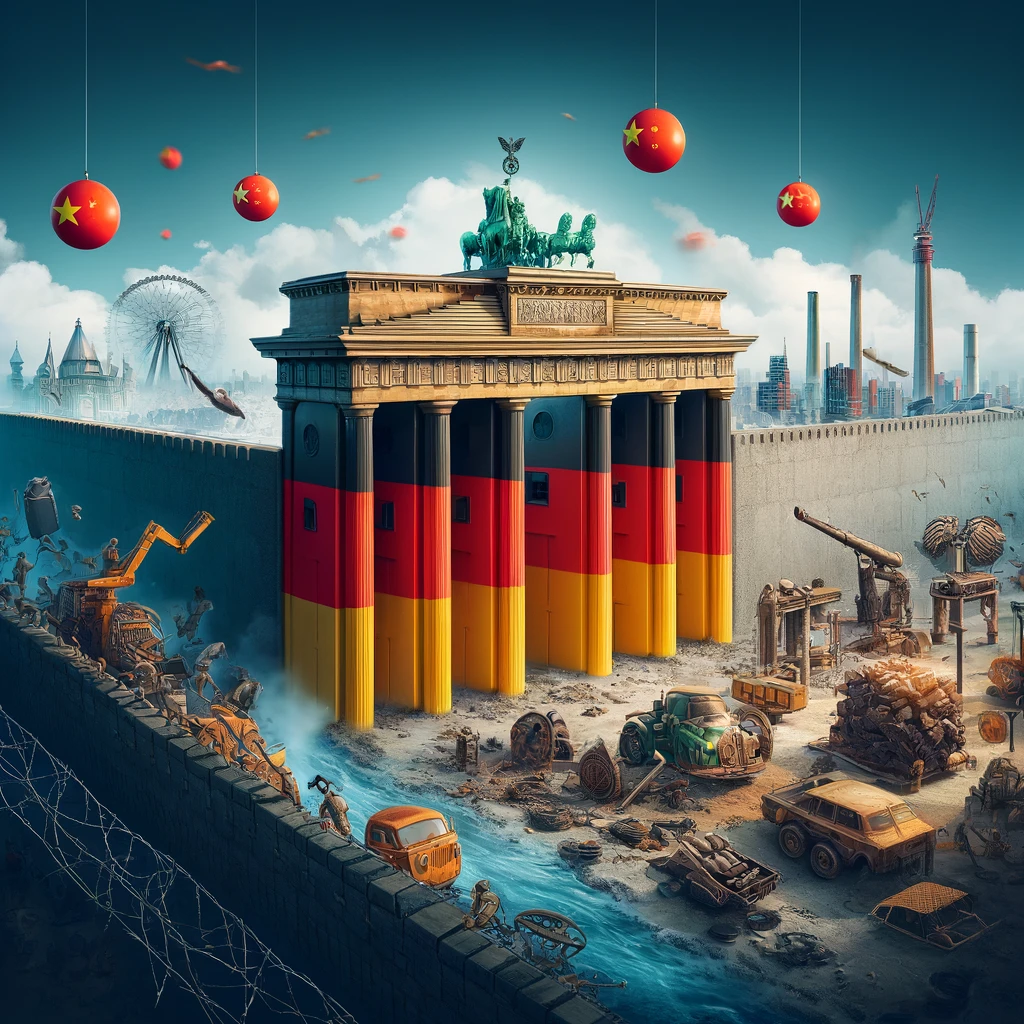German Chancellor Olaf Scholz touched down in Chongqing, China, on a crisp Sunday morning. The scene was set by the Chinese state broadcaster CCTV as Scholz, accompanied by a delegation of ministers and business executives, began his strategic trip aimed at strengthening economic bonds with Berlin’s largest trading partner.
As tensions simmer between Western nations and Beijing, Scholz told us that Germany is not backing down from its economic engagements with China, the globe’s number two economy. This resolve comes amidst loud calls for “decoupling” led by the US, which Scholz outright rejects. The Chancellor’s willingness to extend an olive branch to China could, however, stir discontent among allies like the US and the EU, who are increasingly wary of China’s substantial subsidies to its industries.
“China remains a really important economic partner,” Scholz confidently told journalists just before his departure, emphasizing his commitment to level the playing field for German companies operating in China.
Beyond trade and economics, Scholz’s visit carries weighty geopolitical implications. His agenda includes talks aimed at persuading Chinese President Xi Jinping to leverage his relationship with Russia, urging a de-escalation of the ongoing conflict in Ukraine.
“Given the close relations between China and Russia, Beijing has the possibility to exert its influence on Russia,” a source from the German government noted.
This tour, spanning Chongqing, Shanghai, and Beijing, is Scholz’s second visit to China since assuming office. His inaugural visit in November 2022 faced intense scrutiny shortly after Xi Jinping had solidified his political power, heralding the first post-pandemic visit by a G7 leader to China.
Back then, the Western world, reeling from supply chain disruptions amid the health crisis and China’s staunch support of Russia post-Ukraine invasion, was prompted to reconsider its dependency on Chinese markets and production capabilities.
Meanwhile, back home, the German economy showed early signs of resilience this year, as evidenced by the recent data releases. February witnessed a 2.1-percent increase in overall output, exceeding expectations and building on January’s 1.3-percent rise.
This growth was aided by dry weather boosting the construction sector by 7.9 percent, and reduced energy costs spurring the car manufacturing and chemicals sectors to grow by 5.7 percent and 4.6 percent, respectively.
However, despite these gains, things remain bleak. Germany’s total production was still down by 4.9 percent compared to the previous year and nearly 8 percent from its pre-pandemic levels. With exports to China declining, last year saw the German economy contract by 0.3 percent, making it the poorest performer among major developed nations.
An analysis by the Netherlands financial services group ING remarked, “as much as today’s industrial data is a balm for the German economic soul, this is not yet the start of a remarkable recovery.”
They noted that anticipated cuts to interest rates by the European Central Bank, alongside lower gas and electricity prices and the resilience of the US economy, might offer some relief to German industries in the upcoming months.
Yet, global issues and structural challenges like the green transition are expected to persist. A report from Euronews, referencing analysis by Germany’s top research institutes, described the economy as “ailing” with a continued pessimistic outlook, indicating overlapping economic and structural factors stifling overall growth.
Siemens CFO Ralf Thomas summed up the long-term challenge facing German manufacturers in reducing their dependence on China. “Global value chains have been building up over the last 50 years. How naive do you need to be to believe that this can be changed within six or 12 months?” he remarked in an interview with the Financial Times, emphasizing that realigning these chains is a decades-long endeavor.
With China as Germany’s top trading partner, involving major companies like Volkswagen and BASF as well as smaller entities, the economic ties run deep. “We cannot afford not to be [in China],” Thomas declared, acknowledging the challenge posed by rising local competitors and adding, “if you can stand the heat of the Chinese kitchen, you are successful in other places as well.”





